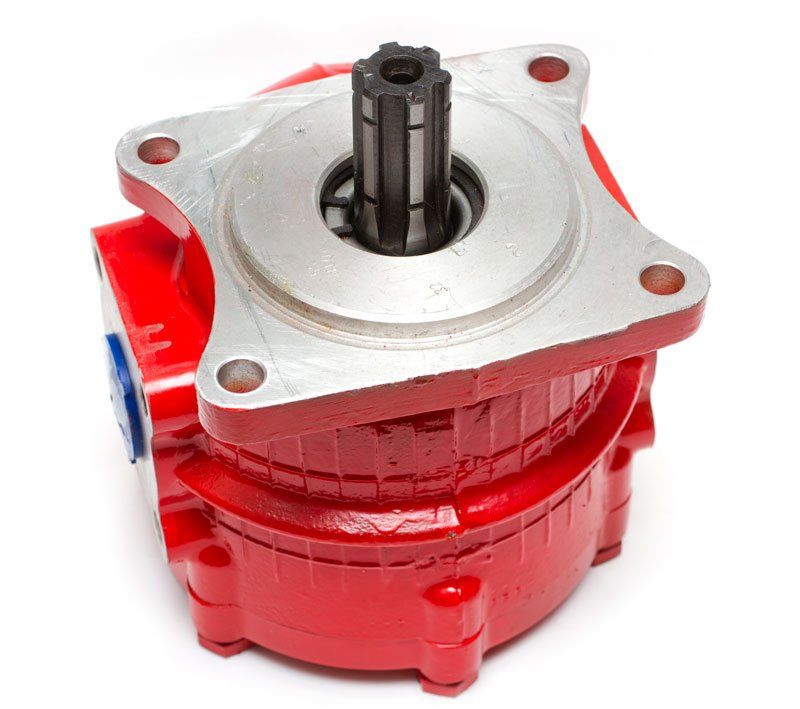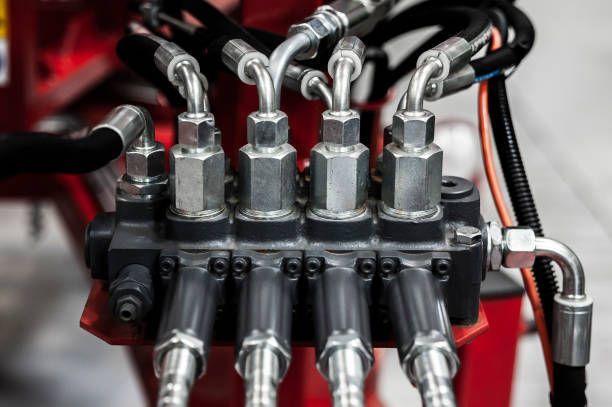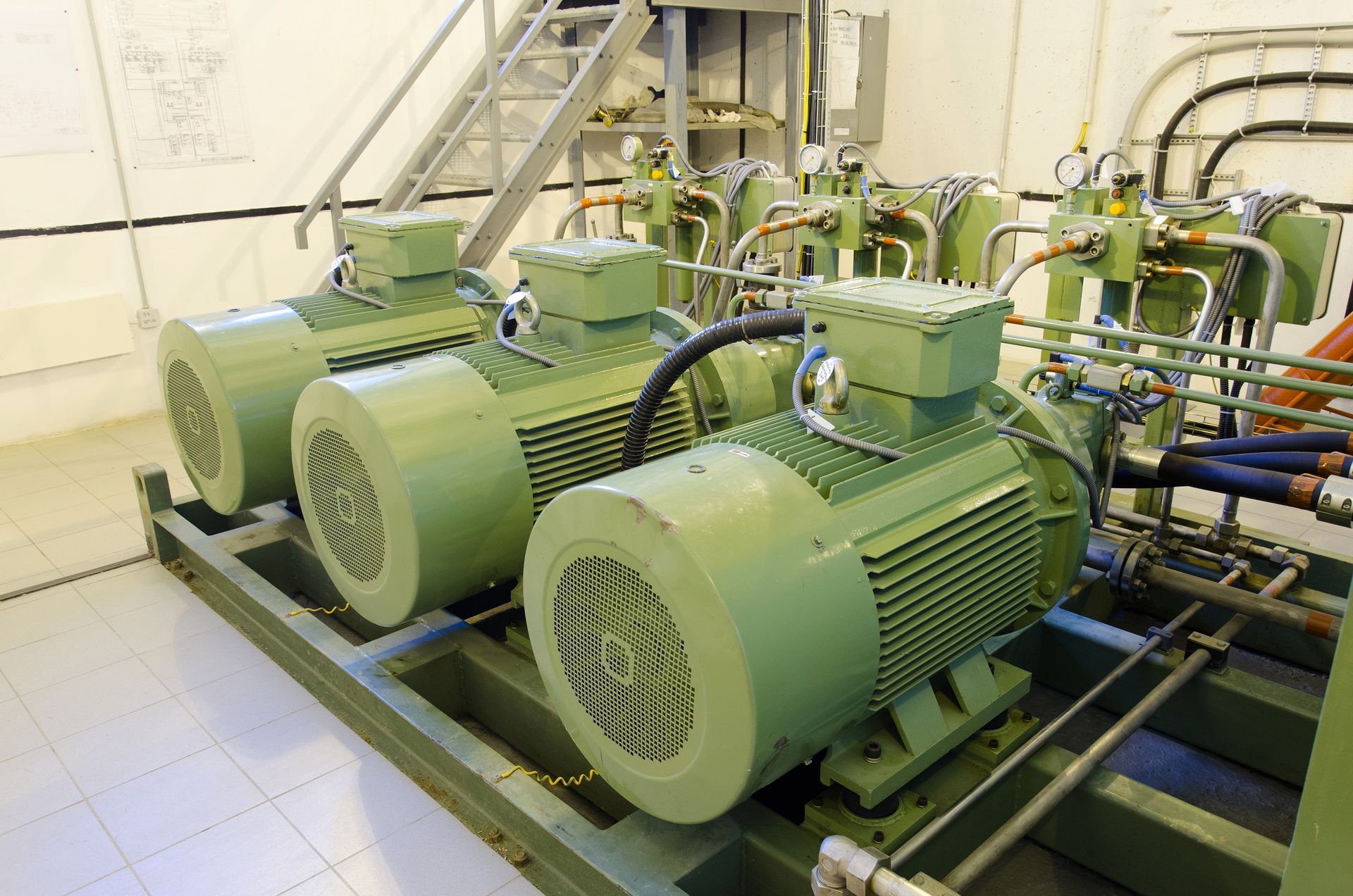Hydraulic Pump Aeration Versus Cavitation: What's the Difference?
Admin • November 13, 2020

Most modern hydraulic pumps are reliable, robust pieces of equipment that will withstand years of constant service. However, any hydraulic pump can suffer from mechanical issues. Aeration and cavitation are two serious problems that can affect a hydraulic pump, and either problem can cause serious damage if the issue is ignored.
However, it can be difficult to figure out if a malfunctioning pump is suffering from aeration or cavitation, as the two problems tend to produce similar symptoms. Despite these similarities, aeration and cavitation have different causes and require different solutions, so knowing the difference between the two problems is vitally important knowledge for any hydraulic pump user.
What Is Hydraulic Pump Aeration?
All hydraulic pumps contain a small amount of air, which provides space for the pump's hydraulic fluid to expand into as it heats up. However, excessive amounts of air in a hydraulic system can cause serious problems.
Aeration in hydraulic pumps occurs when air is drawn into the pump's hydraulic fluid supply. Air can infiltrate your system through perished pump seals, damaged pipe connectors, leaking suction lines, and other forms of damage. This unwanted air mixes with and dissolves into the hydraulic fluid supply.
Hydraulic fluid that has been contaminated by exposure to air loses many of its functional properties. For example, hydraulic fluid containing excess air cannot conduct heat as efficiently, so aeration can cause rapid overheating in affected pumps and other hydraulic systems. Serious aeration can also impede the pump's stroke cycle, causing a significant drop in usable power.
What Is Hydraulic Pump Cavitation?
For a hydraulic pump to function properly, the flow of fluid from the pump's reservoir to the pump itself must remain constant and unimpeded. If this flow speeds up or slows down for any reason (such as improper pressure settings or a block in the suction line), this can lead to a potentially catastrophic problem known as cavitation.
When a running hydraulic pump does not receive hydraulic fluid at the proper rate, fluid pressure in the pump's suction line can drop dramatically. This causes the formation of bubbles inside the hydraulic fluid, which contain air and vaporized hydraulic fluid. These bubbles subsequently collapse, creating an incredible amount of force and heat.
The shockwaves created by these imploding bubbles can do an incredible amount of damage to a hydraulic pump in a short space of time. The pump's impellers and interior surfaces tend to be particularly badly affected by cavitation, and a pump that has suffered from extensive cavitation may need a complete rebuild before it can be used again.
How Can You Tell the Difference Between Cavitation and Aeration?
While cavitation and aeration have different causes, they can produce similar problems, making proper diagnosis difficult. High hydraulic fluid temperatures, lowered pumping rates, and visibly damaged valve seals can all be caused by either cavitation or aeration.
Generally, the easiest way to tell the difference is by listening to the malfunctioning pump, as both types of problem usually produce distinct noises. A cavitating pump tends to produce a steady, rhythmic pattern of knocking or whining noises. Unusual noises produced by aeration are more erratic and random and tend to sound more like rattling than knocking.
However, it is important to note that cavitation and aeration are not mutually exclusive problems, and a poorly maintained hydraulic pump may suffer from both problems simultaneously. Combined aeration and cavitation can lead to a particularly damaging form of cavitation, known as gaseous cavitation.
If your hydraulic pump is suffering from any signs of cavitation or aeration, calling in a professional hydraulic repair service is usually the fastest way to get to the bottom of the problem. These services have access to specialized testing tools and equipment that can quickly detect cavitation and aeration and will be able to provide rapid and effective solutions.
If your hydraulic pumping system is not functioning as it should, and you think cavitation or aeration may be the cause, contact the hydraulic experts at Quad Fluid Dynamics, Inc., for professional advice.
Hydraulic pumps are quickly becoming an industry standard in industrial machinery. Continue reading to learn about the benefits of hydraulic pumps.
Custom hydraulic systems are used across a multitude of different fields and functions. Read on to learn more about the endless possibilities.
Hydraulic pumps are important. Dive into the common causes of hydraulic pump failures and explore effective solutions to keep your systems running smoothly.
Follow this quick guide to learn some of the best methods for determining exactly what hydraulic part you need and how to access those parts quickly.
Like any other machinery, hydraulic pumps need routine servicing to function efficiently. Learn how to drain and clean your hydraulic pump's reservoir.
At the heart of hydraulic systems lies hydraulic fluid, a critical component that enables the transmission of force and motion. Read to learn more.
How should you decide when to rebuild or repair your hydraulic system? Read this blog to learn the differences between the restoration methods.


